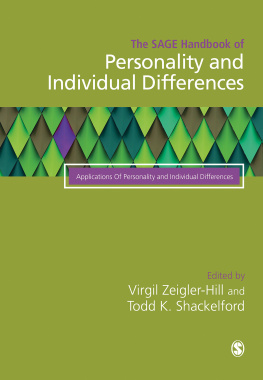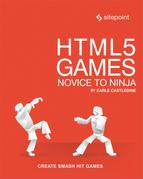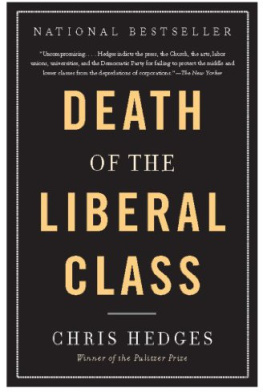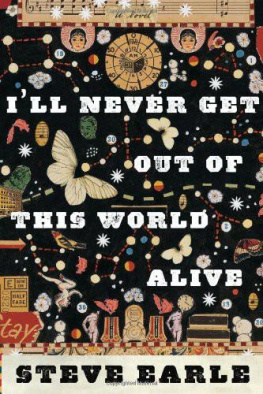
Through the eyes of a Concerned Liberal by Earle F Zeigler
This book is written to provide information and motivation to readers. Its purpose is not render any type of psychological, legal, or professional advice of any kind. The content is the sole opinion and expression of the author, and not necessarily that of the publisher.
Copyright 2020 by Earle F Zeigler
All rights reserved. No part of this book may be reproduced, transmitted, or distributed in any form by any means, including, but not limited to, recording, photocopying, or taking screenshots of parts of the book, without prior written permission from the author or the publisher. Brief quotations for noncommercial purposes, such as book reviews, permitted by Fair Use of the U.S. Copyright Law, are allowed without written permissions, as long as such quotations do not cause damage to the books commercial value. For permissions, write to the publisher, whose address is stated below.
ISBN: 978-1-952617-54-6 (Paperback)
ISBN: 978-1-952617-55-3 (Hardback)
ISBN: 978-1-64934-098-6 (eBook)
Printed in the United States of America.
Rustik Haws LLC
100 S. Ashley Drive, Suite 600
Tampa, FL 33602
https://www.rustikhaws.com/
Preface
If youre reading these words--and maybe have even bought Through the Eyes of a Concerned Liberal (Why North American Should Wake Up Soon) I hope you wont say, Oh no, not another diatribe, a self-help book by somebody who probably needs help himself! Actually I dont need help at the moment, unless possibly the knowledge that someone has read these words--and found them useful! That would truly help me quite a bit. Why? Not because I need the money, but because Im very worried about the ways things are going all around us here in North America and abroad.
Note to Canadians: Because there is an entity called the Liberal Party in the Canadian political scheme, I stress that what I am referring to throughout this book is a small l liberal--not a member of the Liberal Party of Canada.
A couple of years ago I decided to try to do something about the situation. I started to write what are called trade books (i.e., books that are sold in bookstores for the general public). In doing so, I found it was necessary to separate myself as much as possible from academic words and phrases. Whatever, I decided to simply offer some down-to-earth ideas about how one person--YOU!--might go about becoming more knowledgeable about yourself (e.g., your values, your socio-political stance, your RQ[recreation quotient]) I believe that such knowledge can help a person --anybody!-- become a more effective person who enjoys life more fully.
Heres a brief outline of what this book includes. Section One is an assessment of the North American situation in what some people have been calling the postmodern age. My thought at this point is what we are actually witnessing are the early stages of the breakdown of the American civilization. Sounds ridiculous, I know. However, I will try to explain to you how this may be happening. The late historian, Arnold Toynbee reasoned that most past civilizations went through four stages in their life cycle. There has typically been a fairly identical pattern of birth, growth, breakdown, and disintegration. A civilization or society is, of course, but a group of individual humans with an infinite number of interrelationships. It could go on indefinitely, although none has to the present day.
Toynbee endowed history with the possession of certain themes of action. They all seemed to have a one-two rhythm such as challenge-and-response as the society develops. Then there is withdrawal-and-return or rout-and-rally as it begins to disintegrate. Humans throughout known history answered the right challenge presented by the environment and were thereby started forward on the path to what we decided to call civilization. This does not mean necessarily that people have had the help of a favorable or easy environment. Conversely, they have often been confronted with many difficulties that stimulate them. However, humans develop as they respond to the challenge of various stimuli. Subsequently, the developing society in which they live faces a number of other stern challenges such as war, unfavorable environmental conditions, plagues and other conceivable moral or physical pressure.
If a civilization meets its challenges, it survives. Its life is measured by the number of challenges that are met successfully. Trouble comes when an incorrect response is made to a specific challenge or stimulus. (Here is where I think the U.S.A. has been making a number of wrong decisions since World War II) Then the society is faced with what Toynbee called a Time of Troubles. This period in the civilizations development is not necessarily a catastrophic fall to oblivion; it may go on for hundreds or even thousands of years. The civilization may even seem to be invincible as it goes from victory to victory. What is happening, however, usually results in a Universal State. This occurs when the conflicting countries or influences have order imposed on them by a stronger force. An example of this would be ancient Romes Augustan dictatorship. A second example might be that of ancient Egypt. It had a Universal State extending over what today seems to be a very long period of time (i.e., 2400 years for its two empires!).
Another example, much closer to home, can conceivably be called the presently extending civilization of the United States of America. The 20th century has been called the century of the United States rise to power. I believe that this past century was indeed characterized by the rise of a new civilization (if you will). Along the way this new powerhouse--the United States--has been exporting democracy, capitalism, technology, and Christianity strongly.
Then at one point (the beginning of a new century), the worlds only remaining superpowerthe United States!--having defied the will of the United Nations, went to war a second time to defeat the forces of Iraqs Saddam Hussein. The rationale provided was that Hussein was stockpiling weapons of mass destruction (WMDs), and that he was also aiding and abetting the efforts of terrorists (e.g., Osama bin Laden). It is now generally accepted that both of these claims were false. (Our leaders [Bush and Blair] say that they received false intelligence.) Whatever the case may have been, more than a few people are beginning to think that the United States with its tentacles reaching out all over the world in both overt and covert ways some time ago began to assume some of the characteristics of what Toynbee called a universal state. For example, it is also quite obvious that indeed one characteristic of this condition is present: there is presently massive unrest in multiple quarters both in North America and on other continents.
The world will undoubtedly continue its present evolutionary process. Those who have studied the past with high degrees of intelligence and diligence have offered us a variety of philosophies about humans history on what we call Earth. It would seem inaccurate, or at least excessive narrowness of definition, to deny a degree of scientific status to the discipline of history. We can indeed argue that with each succeeding generation the study of history, broadly defined, is becoming more of a science (as that term is generally understood).
We cant be sure about what the future holds. However, if the study of the past is credible, we can surmise that there will be continuing uncertainty. In defense of such a condition, we can argue that uncertainty is both dynamic and stimulating as it concomitantly provides a challenge to us all. What should concern us, however, is the amount of individual freedom we are permitted living within a type of political state known as a democracy. We still have to prove that democracy is possible (i.e., successful and rewarding in a variety of senses) over a period of centuries. The prevailing trend toward an increasing number of full-time politicians and an overwhelming percentage of indifferent citizens does not bode well for the future.


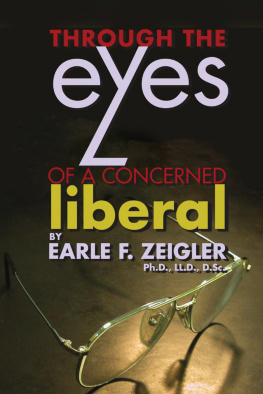


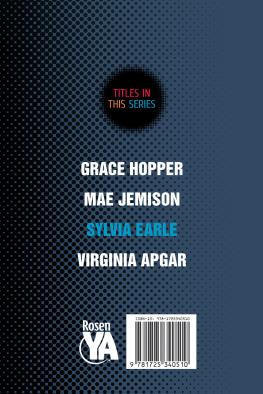

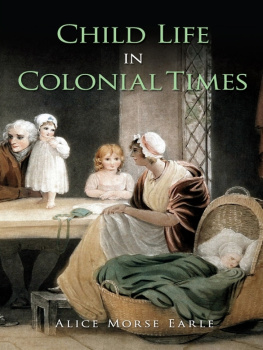
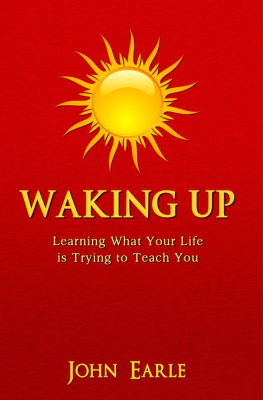
![Castledine Earle - JQuery novice to ninja ; [rich, fast, versatile ; Javascript the way it should be]](/uploads/posts/book/195922/thumbs/castledine-earle-jquery-novice-to-ninja-rich.jpg)
